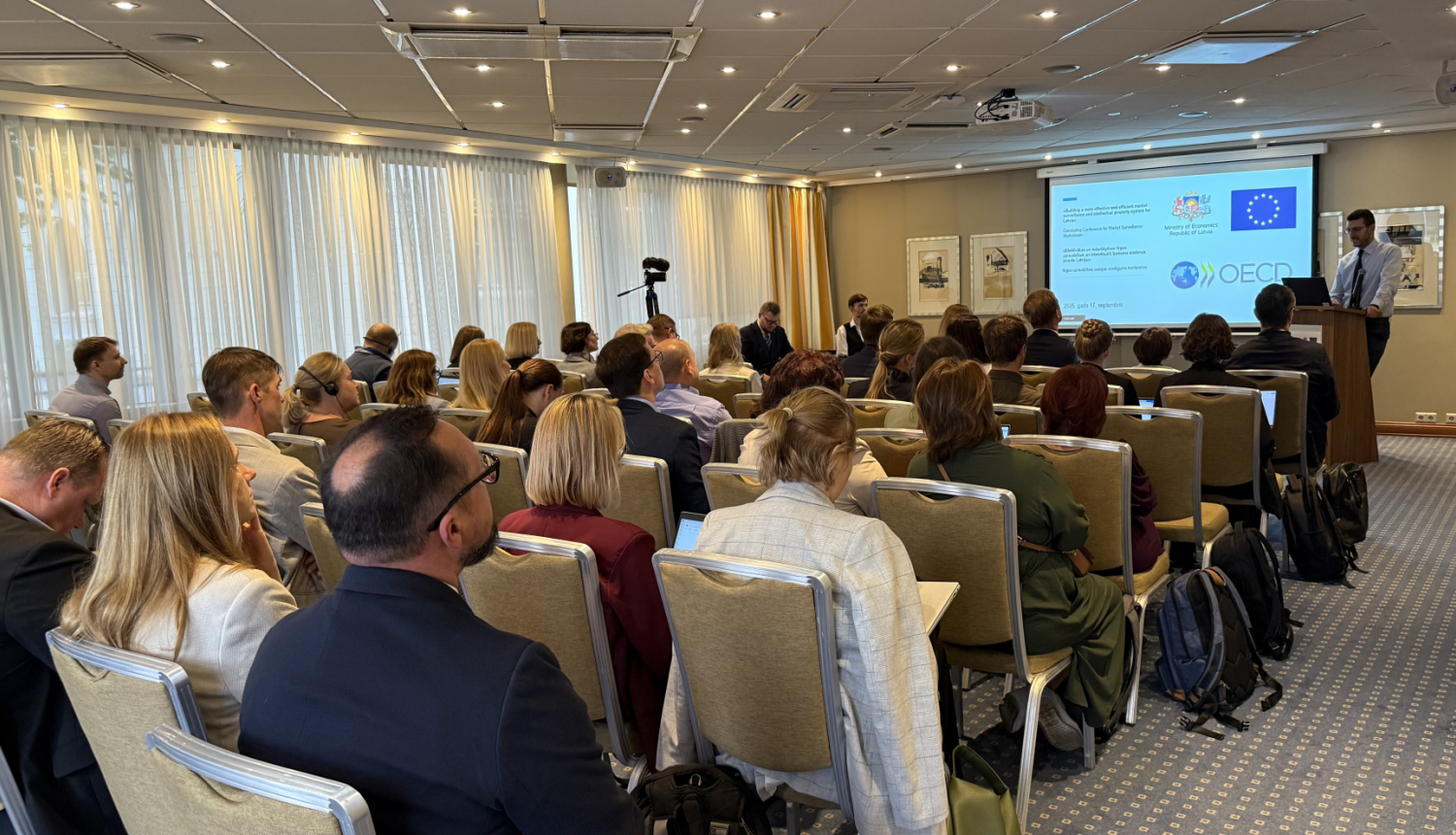Translated using ChatGPT service.
OECD: Latvia’s non-food product market surveillance system should be reviewed and optimized by eliminating overlapping functions, introducing a unified approach to risk assessment, and digitalizing the flow of information between institutions — measures that would improve the system’s efficiency and effectiveness.
These are the conclusions reached by the Organisation for Economic Co-operation and Development (OECD) following an evaluation of Latvia’s market surveillance system, conducted as part of the structural reform project “Establishing a More Effective and Efficient Market Surveillance System for Latvia,” supported by the European Commission.
Latvia’s non-food product market surveillance system is fragmented — it is implemented by 15 institutions with differing mandates and approaches to supervision. Market surveillance functions fall under the competence of the Consumer Rights Protection Centre (CRPC), the Health Inspectorate, the Food and Veterinary Service, the State Environmental Service, the State Police, the Road Traffic Safety Directorate, and other authorities. The OECD found that Latvia’s market surveillance system requires a comprehensive reform to eliminate fragmentation, improve coordination, and increase efficiency.
“Such a comprehensive evaluation by the OECD serves as an important starting point for further optimization measures. The Ministry of Economics has already begun optimizing the functions of state-owned enterprises — this summer, a report on the reorganization of small enterprises was submitted for inter-institutional coordination — and the OECD’s conclusions confirm that we are moving in the right direction,” emphasized Minister of Economics Viktors Valainis.
The main improvements should focus on institutional structure, risk management, and inter-agency cooperation — by optimizing the number of institutions, introducing a unified risk management system, and digitalizing and automating information exchange. The OECD noted that currently too many resources in Latvia are spent on low-risk products, and too much attention is given to reactive, complaint-based control rather than proactive risk mitigation.
The current system relies heavily on inspections at retail locations — to ensure cost efficiency, it is necessary to transition to risk assessments based on data and analysis. This would allow for the identification of products with a high risk of harm. A risk model should be developed to assess product hazards based on the likelihood and severity of potential harm.
By designating the Ministry of Economics as the lead institution for reform and improvement of the market surveillance system, and by strengthening the CRPC as the central market surveillance authority with an expanded mandate, Latvia can establish a modern, evidence-based market surveillance system that effectively protects consumers and promotes fair competition while using state resources efficiently. To achieve this, the interoperability of information systems used by supervisory institutions must be improved, with the CRPC’s “UZRAUGS” system serving as the main platform. Institutions should use interfaces that allow automatic synchronization of their data with “UZRAUGS,” while less digitalized institutions should periodically export their data to the system.
The strategic objectives of the market surveillance system should focus on measurable outcomes — such as improving consumer and business satisfaction, reducing costs, and decreasing the number of accidents. Digitalization of complaint management should be promoted, the risk assessment system further developed, and stakeholder (consumer and business) engagement enhanced. The system’s success should be evaluated not by the number of inspections conducted but by the results achieved. Equally important is the continuous strengthening of the capacity of specialists involved in the process.
As the first steps in implementing the reform, the OECD envisions a political decision on the preferred model and subsequent amendments to the legal framework to enable the transfer of functions.
The project “Establishing a More Effective and Efficient Market Surveillance System for Latvia” lasted two years — since autumn 2023 — during which OECD experts conducted an evaluation of Latvia’s market surveillance system, provided training for supervisory institution experts, and prepared recommendations and strategic directions for future system improvements.



